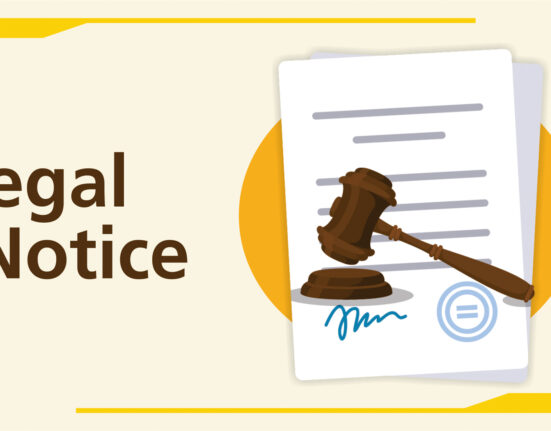Introduction
A loan is a financial transaction where one party, typically a lender, provides money or other assets to another party, typically a borrower, with the understanding that the borrower will repay the loan amount over time, typically with interest. Loans can be made by a variety of lenders, including banks, credit unions, and other financial institutions, as well as private individuals and organizations. This articles explains the various facets of online lending and digital loan in India and USA.
Understanding Digital Loan
An online loan, also known as a digital loan, is a type of loan that can be applied for, processed, and funded entirely online. Online loans are offered by many banks, financial institutions, and online lenders.
The application process for an online loan typically involves filling out an online application form with personal and financial information, such as your income, employment status, and credit score. The lender will then use this information to determine your eligibility for the loan and the terms and conditions that will apply.
Online loans can come in various forms, such as personal loans, business loans, student loans, and payday loans. They can have different interest rates, repayment terms, and loan amounts depending on the lender and the type of loan.
Before applying for an online loan, it’s important to research and compare different lenders and their loan offerings to find the best deal for your financial situation. It’s also important to make sure that the lender is reputable and trustworthy to avoid falling victim to a loan scam or fraud.
Are Online loan or lending allowed in USA
Yes, online loans are legal in America. Many lenders, both traditional banks and non-bank lenders, offer online loans to consumers in the US. However, the laws and regulations that govern online loans can vary by state, and there are federal laws that protect consumers and regulate the lending industry.
Are Online loan or lending allowed in India
Yes, online loans are legal in India. Several lenders, including banks and non-banking financial companies (NBFCs), offer online loans to consumers in India. However, the online lending industry in India is regulated by the Reserve Bank of India (RBI) and other financial regulatory bodies to ensure that lenders follow fair practices and provide adequate consumer protection.
According to RBI guidelines, online lending platforms must disclose all loan terms and conditions, including interest rates, fees, and repayment terms, to borrowers. They must also maintain a transparent and fair lending process, which involves conducting adequate due diligence on borrowers and following fair and non-discriminatory lending practices.
Additionally, the RBI has issued guidelines to protect borrowers from predatory lending practices, including caps on interest rates and fees that can be charged by lenders. The RBI also requires lenders to comply with data security and privacy standards to protect borrowers’ personal and financial information.
Overall, while online loans are legal in India, borrowers should exercise caution and research lenders thoroughly before accepting a loan offer.
Laws related to Online lending in USA
Online lending in America is subject to a number of federal and state laws and regulations, which are designed to protect consumers and ensure that lenders operate fairly and transparently. Some of the key laws related to online loans in the US include:
- Truth in Lending Act (TILA): This federal law requires lenders to disclose the full terms and costs of a loan to the borrower, including the APR (annual percentage rate), fees, and any other charges associated with the loan.
- Equal Credit Opportunity Act (ECOA): This federal law prohibits lenders from discriminating against borrowers based on their race, color, religion, national origin, sex, marital status, or age.
- Fair Credit Reporting Act (FCRA): This federal law regulates how credit reporting agencies collect and use consumer credit information, and requires lenders to provide accurate information to credit bureaus.
- State laws: Many states in the US have their own laws and regulations related to online loans, including caps on interest rates and fees, licensing requirements for lenders, and consumer protection provisions.
- Consumer Financial Protection Bureau (CFPB): The CFPB is a federal agency responsible for enforcing consumer protection laws related to financial products and services, including online loans.
Note: The laws and regulations related to online loans can vary depending on the state in which the borrower resides, as well as the specific type of loan offeres. Borrowers should carefully review all terms and conditions before agreeing to an online loan, and seek legal advice if they have any concerns or questions.
Laws related to Online or Digital loan in India
The laws related to online loan providers in India are primarily governed by the Reserve Bank of India (RBI) and other financial regulatory bodies. Here are some of the key regulations and guidelines that apply to online loan providers in India:
- Registration and licensing: Non-banking financial companies (NBFCs) offering online loans in India must register with the RBI or other appropriate regulatory bodies. They must also obtain necessary licenses and comply with all applicable regulatory requirements.
- Interest rates and fees: Online loan providers in India must follow RBI guidelines on interest rates and fees, which set caps on the maximum interest rates and fees that can be charged for different types of loans.
- Transparency and disclosure: Online loan providers in India must disclose all loan terms and conditions, including interest rates, fees, and repayment terms. They must also maintain a transparent and fair lending process, including conducting adequate due diligence on borrowers and following non-discriminatory lending practices.
- Data security and privacy: Online loan providers in India must comply with data security and privacy standards to protect borrowers’ personal and financial information. They must obtain the consent of borrowers for the collection and use of their data and maintain appropriate safeguards to prevent unauthorized access to or misuse of this data.
- Consumer protection: The RBI has issued guidelines to protect borrowers from predatory lending practices, including setting caps on interest rates and fees that can be charged by lenders. Online loan providers are also required to provide adequate customer support and grievance redressal mechanisms to address any complaints or disputes that may arise.
Top digital loan providers in India
There are several digital loan providers in India that offer loans to customers online. Here are some of the top digital loan providers in India:
- PaySense: PaySense offers personal loans up to Rs. 5 lakhs with a repayment tenure of up to 60 months. The company has a simple online application process and promises quick disbursal of funds.
- MoneyTap: MoneyTap offers personal loans up to Rs. 5 lakhs with a flexible repayment tenure of up to 36 months. The company has a simple online application process and promises quick disbursal of funds.
- KreditBee: KreditBee offers personal loans up to Rs. 1 lakh with a repayment tenure of up to 15 months. The company has a simple online application process and promises quick disbursal of funds.
- CASHe: CASHe offers personal loans up to Rs. 3 lakhs with a repayment tenure of up to 12 months. The company has a simple online application process and promises quick disbursal of funds.
- EarlySalary: EarlySalary offers personal loans up to Rs. 5 lakhs with a repayment tenure of up to 36 months. The company has a simple online application process and promises quick disbursal of funds.
Please note that the above list is not exhaustive and there are several other digital loan providers in India as well. It is important to compare the interest rates, fees, and other terms and conditions before choosing a loan provider.
Best Online loan providers in US Market
There are several digital loan providers in the USA that offer loans to customers online. Here are some of the top digital loan providers in the USA:
Priority Plus Financial:
Priority plus financial claims personal loans with low interest repayments even with less than perfect credit scores. The company offers personal loans, consolidated loans, and business loans with various debt offers and programs. The application process is quick and easy even that you will get your requested money within two days. Priority plus financial has higher BBB ratings, hundreds of positive reviews, and 15+ years of successful experience. Repayment methods are flexible with fixed interest rates. The professionals ensure no repayment penalties and are responsible for your mental peace. The whole process has no upfront fees as well as no demand for higher credit scores. This makes the process more convenient and user-friendly.
Point Break Financial:
Point break Financial is known for its flexible debt consolidation loan offers rather than personal and business loans. They have authorized BBB profile and active loan provider services. However, they do not ensure direct loan payments but rather involve other lenders or investors. Once you submit the application for debt consolidation, they consider your preferences and connect you with the right lender. So, the professionals do not make sure whether your requested debt will be considered or not. In addition, point break financial does not provide its services in all states. So, you will not get your requested money if you are not a resident of the state where point break financial service is active.
LendingClub:
LendingClub is a peer-to-peer lending platform that offers personal loans up to $40,000 with a repayment tenure of up to 60 months. The company has a simple online application process and promises quick disbursal of funds.
Prosper:
Prosper is another peer-to-peer lending platform that offers personal loans up to $40,000 with a repayment tenure of up to 60 months. The company has a simple online application process and promises quick disbursal of funds.
Upgrade:
Upgrade offers personal loans up to $50,000 with a repayment tenure of up to 60 months. The company has a simple online application process and promises quick disbursal of funds.
SoFi:
SoFi offers personal loans up to $100,000 with a repayment tenure of up to 84 months. The company has a simple online application process and promises quick disbursal of funds.
Please note that the above list is not exhaustive and there are several other digital loan providers in the USA as well. It is important to compare the interest rates, fees, and other terms and conditions before choosing a loan provider.
How To Choose The Best Personal Loan Service?
Comparing two or more financial products is a great idea to end up with the best option. Here are some factors you need to consider while looking for the best personal loan.
Interest Rate: Different personal lenders offer various interest rate loans. Some have lower interest rates while others demand higher interest. So, you need to compare the interest rates to choose the one matching your budget in the long run.
Loan Terms: Loan terms are important to consider because these will allow you to save more on interest. Shorter loan terms save more yet their monthly installments are higher. So, get one with a more suitable loan term and saving policy.
Upfront Fees: Upfront or origination fees is the amount that lenders charge to process and approve your application. Various reputable loan providers do not charge for application approval. So, find the loan provider with the lowest or no upfront charges.
Loan Amounts: Loan providers offer different plans with varying funds to meet the financial needs of customers. Choose the plan that offers the funds sufficient to achieve financial freedom.
Credit Scores: Personal loan providers consider your credit scores to ensure your eligibility for approval. However, there are also some lenders available that confirm your loan demand even with less than perfect credit scores.
So, if you have less than excellent credit scores, you can narrow down the loan providers on the basis of credit scores.
Conclusion
Taking an online loan can be safe if you take the necessary precautions and do your due diligence before choosing a lender. Here are some tips to help ensure the safety of taking an online loan:
- Research the lender: Make sure the lender you choose is reputable and licensed to operate in your state. Check their website for information about their lending practices and reviews from other borrowers.
- Check the interest rate and fees: Be sure to read the fine print and understand the interest rate and fees associated with the loan. Compare rates and fees from different lenders to ensure you are getting the best deal.
- Protect your personal information: Be careful when sharing personal and financial information online. Make sure the lender has secure encryption technology to protect your data.
- Verify the loan terms: Before accepting the loan, make sure you understand the repayment terms and schedule. Ask questions if anything is unclear.
- Read the loan agreement carefully: Be sure to read the loan agreement carefully and understand all the terms and conditions before signing.
Overall, taking an online loan can be safe as long as you take the necessary precautions and choose a reputable lender. It is important to do your research, read the fine print, and protect your personal information to ensure a safe and secure borrowing experience.
![]()




Leave feedback about this